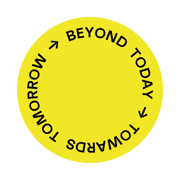Although the linear economy has been instrumental to global development and health improvements and prosperity, it has significantly contributed to the greatest threat the world has ever faced: Climate Change.
“Circular Economy – a systems solution framework that tackles global challenges like climate change, biodiversity loss, waste and pollution”. - Ellen Macarthur Foundation.
We desperately need to rethink our approach to ensure waste is eliminated, resources are circulated at their highest value and nature is regenerated. The resources, materials, and energy used to make products we used daily should be more valued; within a circular economy the aim is to keep this ‘value’ within the system and reprocess resources to generate further economic, social, or environmental benefit, using our resources efficiently.
This will reduce the amount of waste generated, the extraction of new raw materials and help to kerb over consumption. The circular economy is key in tackling climate change while readying businesses and organisations for the increasing global volatility and supply challenges we continue to face. Businesses, organisations and individuals therefore, need to embrace circular concepts in day-to-day life.








